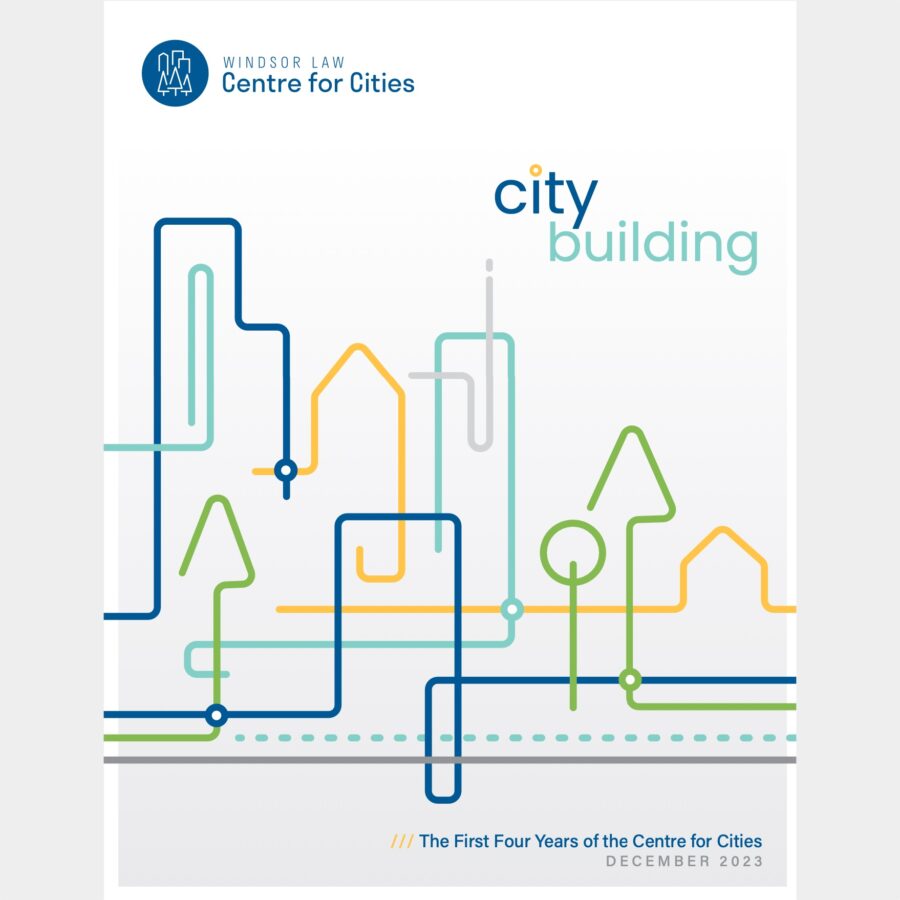
Student Blog: Strengthening Municipal Ethics in Ontario
(27 March 2023) by Shereen Arcis
On February 16, 2023, the City of Toronto’s Integrity Commissioner, Jonathan Batty, confirmed that he would be conducting an inquiry into former Mayor John Tory’s inappropriate relationship with a female former staffer, who was 31 years old at the time of the affair—almost four decades younger than Tory. While Batty declined to comment on the investigation’s scope, he revealed that Tory asked him to review the matter on February 10, 2023—the same day that Tory announced his resignation.
The Integrity Commissioner’s authority to inquire into whether a Member has breached the City’s Code of Conduct for Members of Council (“Code of Conduct”) is provided for in section 160(1)(a) of the City of Toronto Act—the equivalent of section 223.4(1)(a) of the Municipal Act for all other Ontario municipalities. Indeed, the Mayor and Councillors are governed by the Code of Conduct, and while Toronto’s Code does not explicitly address relationships between Members of Council and their staff, there are a few general provisions that are relevant in this regard.

To start, the Preamble to the City of Toronto Code of Conduct states that “Members should act with integrity and avoid real and apparent conflicts of interest and the improper use of their influence.” The Preamble also provides that “Members should perform their duties and arrange their private affairs in a manner that promotes public confidence and bears close public scrutiny.” Lastly, Rule 8.0(b) states that Members “must not use the influence of their office for any purpose other than for the exercise of their official duties.”
Furthermore, as discussions about power and consent have taken centre stage since Tory announced his resignation, the City of Toronto’s Human Rights and Anti-Harassment Policy may be applicable insofar as it cautions employees to avoid relationships in which one party is “in a position to give or deny a benefit,” as this could constitute sexual harassment. To be clear, there have been no allegations of sexual harassment against Tory in this context to date. Nevertheless, if Tory is found to have contravened the City’s Human Rights and Anti-Harassment Policy, he may also be in violation of Rule 15.0 of the Code of Conduct, which provides that Members “must observe the terms of all policies and procedures established by City Council.”
To the extent that the Preamble does not comprise the actual Rules of the Code of Conduct, it is presumably of no force or effect. Thus, the Code appears to only contain two broad provisions that directly apply.
The absence—in any Ontario municipality—of specific Code of Conduct rules on intimate relationships between Members of Council and their staff is a useful illustration of the gaps in the municipal ethics regime. An even more serious omission dealing with sexual violence is highlighted by the Chiarelli (Ottawa) and Dhillon (Brampton) cases. In my paper on the interplay between sexual violence and the expansion of Integrity Commissioner powers in Ontario, I describe these egregious cases and some of the reasons why the existing laws that govern Code of Conduct breaches need to be strengthened. One way to enhance the legal framework is by standardizing Integrity Commissioners’ roles across the Province.
As demonstrated by the ambiguity surrounding Batty’s investigation, the failure to standardize Integrity Commissioners’ duties has led to many unanswered questions about the inquiry. In particular, questions remain about how the investigation will be affected by Tory’s resignation, what sanctions Batty can impose—if any—if Tory is found to have contravened the Code, and whether Batty has the jurisdiction to oblige Tory to participate in the inquiry, now that he is no longer a Member of Council. Indeed, none of the applicable laws or policies clarify the Integrity Commissioner’s authority with respect to a Member who has resigned. This means that Batty will have to use his discretion in determining the appropriate scope of the investigation.
While Integrity Commissioners exercise their judgment to some degree in every case, the absence of clear rules increases the likelihood of inconsistency across the Province, as Integrity Commissioners try to navigate grey areas. When combined with broad Code of Conduct provisions that do not directly address the matter at hand, an inquiry into a Member’s potential violation of the Code could look very different depending on the municipality.

For instance, in 2016, the City of London’s Integrity Commissioner concluded that the “inappropriate personal relationship” between former Mayor Matt Brown and former Deputy Mayor Maureen Cassidy had breached the City’s Code of Conduct. The relevant provisions of the Code were generally comparable to the ones that apply to Tory’s possible contravention. However, a noteworthy difference is that London’s Code includes a provision that explicitly directs Members not to “place themselves in a position of obligation to any person” who “might reasonably benefit from special consideration or may seek preferential treatment.”
This begs the question of whether a finding that Tory violated Toronto’s Code of Conduct would have been more likely if the Toronto Code included a similar rule to London’s, as such a provision might more directly apply to his behaviour. More notably, the potential inconsistencies between Integrity Commissioner investigations across Ontario underscore the importance of standardization specifically, and of strengthening the Province’s municipal ethics regime more generally. It will be interesting to see whether Batty’s report identifies any areas for improvement in the applicable policies.
Overall, high-profile cases like that of former Mayor John Tory and the ones I discuss in my paper highlight the deficiencies in the system and the pressing need to amend Ontario’s municipal ethics framework (which the Province of Ontario has recognized, having begun a process of consultation and legislative review in 2021). Although these case studies are certainly concerning, they also present an opportunity for the Province to enact meaningful change.
Shereen Arcis is a 3L student at Windsor Law and a Student Research Associate for the Centre for Cities (C4C). She holds a Master of Arts degree in Political Science from Western University.
The views expressed in this post and accompanying paper are those of the author and do not constitute a position of the University of Windsor, Windsor Law, or the Centre for Cities.
Featured image credit: Shutterstock



